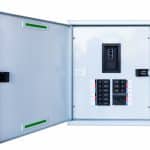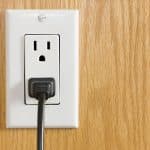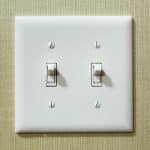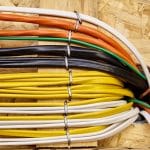Electrical
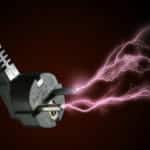 Sparks When Plugging Into An Outlet
Should you be concerned about getting shocked or a fire when your outlet sparks while plugging in?
Sparks When Plugging Into An Outlet
Should you be concerned about getting shocked or a fire when your outlet sparks while plugging in?
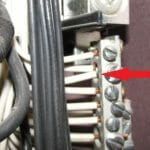 Neutral Bar With Two Wires in One Hole
Two neutral wires under one screw or in one slot on the neutral bar of an electrical panel is a safety concern.
Neutral Bar With Two Wires in One Hole
Two neutral wires under one screw or in one slot on the neutral bar of an electrical panel is a safety concern.
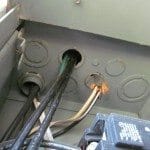 Wire clamps – bushings & connectors
Protecting electrical wires from sharp metal edges is easy to do with...
Wire clamps – bushings & connectors
Protecting electrical wires from sharp metal edges is easy to do with...
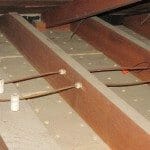 Knob and tube wiring
Older homes, built in the 1800's and up to the 1930,s often used Knob and Tube wiring. Even a few after these years installed it. The're homes today that still have Knob & Tube wiring in use.
Knob and tube wiring
Older homes, built in the 1800's and up to the 1930,s often used Knob and Tube wiring. Even a few after these years installed it. The're homes today that still have Knob & Tube wiring in use.
 Is Aluminum Wiring Safe or a Fire Hazard In Your House?
Million of homes have aluminum wiring and it is still used by electricians. However...
Is Aluminum Wiring Safe or a Fire Hazard In Your House?
Million of homes have aluminum wiring and it is still used by electricians. However...
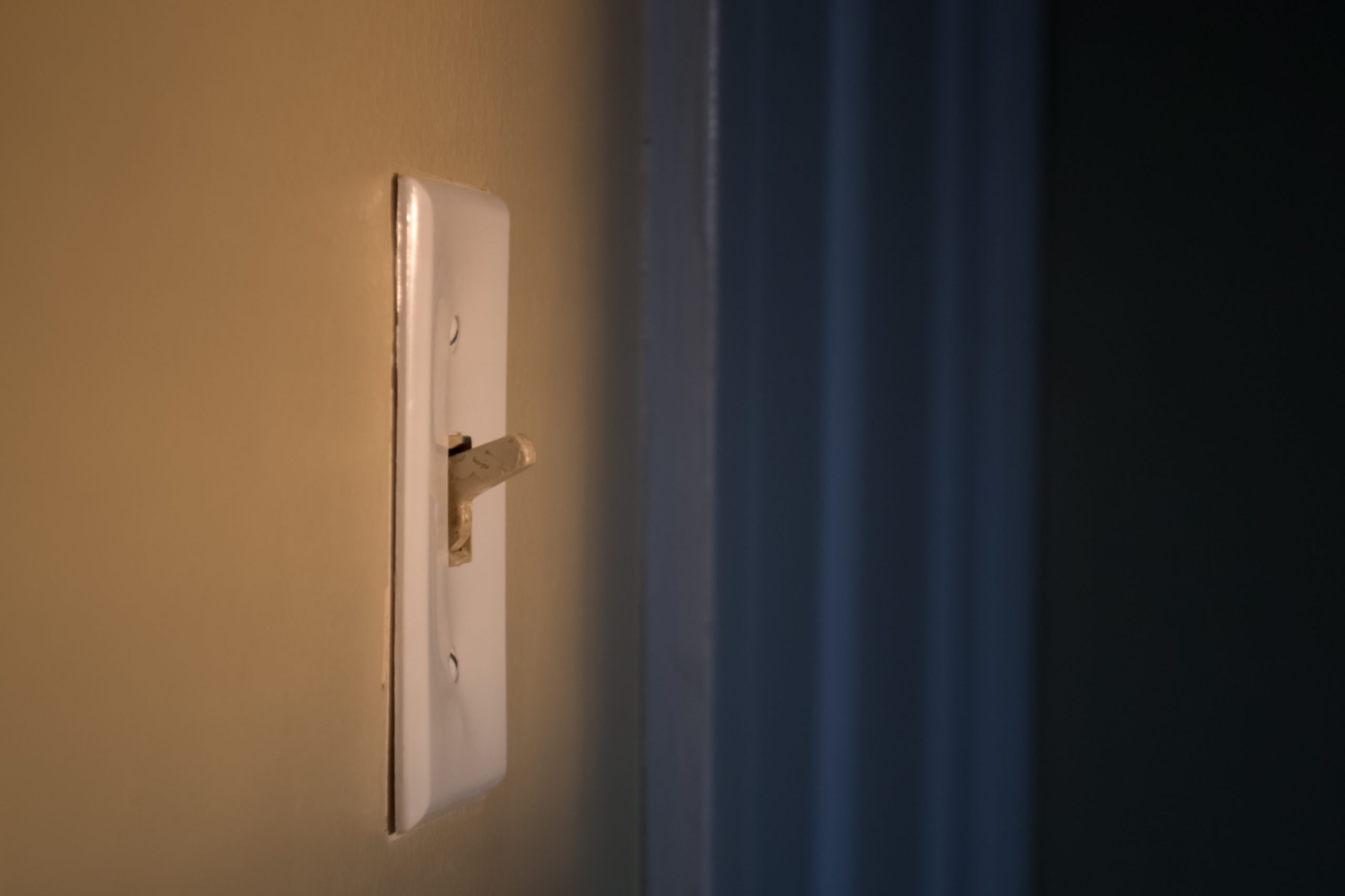 Light Switches Warm or Hot to the Touch
How hot is too hot for light switches?
Light Switches Warm or Hot to the Touch
How hot is too hot for light switches?
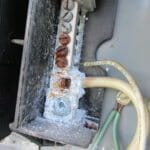 Rusted and Corroded Electrical Panels
When a panel is rusted or corroded maintenance, review or replacement may be needed.
Rusted and Corroded Electrical Panels
When a panel is rusted or corroded maintenance, review or replacement may be needed.
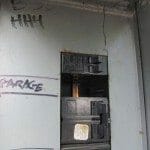 Knockouts Missing In Electrical Panels – Hazardous But Easy to Correct
Knock-outs missing in electrical panels are hazardous but easy to correct.
Knockouts Missing In Electrical Panels – Hazardous But Easy to Correct
Knock-outs missing in electrical panels are hazardous but easy to correct.
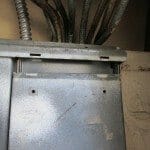 Electrical Panel Covers – Hinges, Screws and Latch Parts
The most common part of an electrical panel to go missing is one or two of the hinges, also...
Electrical Panel Covers – Hinges, Screws and Latch Parts
The most common part of an electrical panel to go missing is one or two of the hinges, also...
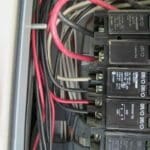 Missing Electrical Panel Covers Create A Number of Safety Hazards
All missing panel covers need to be replaced. The covers protect the electrical components of the panel and provides safety.
Missing Electrical Panel Covers Create A Number of Safety Hazards
All missing panel covers need to be replaced. The covers protect the electrical components of the panel and provides safety.
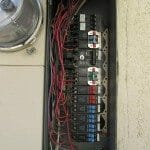 Missing “Dead Front” Covers on Electrical Panels is Serious
Can you guess how the panel cover called a "Dead Front" cover got its name?
Missing “Dead Front” Covers on Electrical Panels is Serious
Can you guess how the panel cover called a "Dead Front" cover got its name?
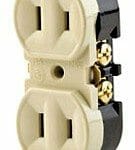 Ungrounded outlet
Older homes often have un-grounded outlets, or an outlet may be miss wired. Grounding provides exterior protection from shock, but there are some easy fixes.
Ungrounded outlet
Older homes often have un-grounded outlets, or an outlet may be miss wired. Grounding provides exterior protection from shock, but there are some easy fixes.
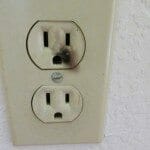 Smoke or burn marks on outlets
Learn about the several reasons that outlets get burn marks or smoke on the facing ...
Smoke or burn marks on outlets
Learn about the several reasons that outlets get burn marks or smoke on the facing ...
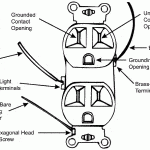 Reverse Polarity on Outlet and How To Fix
If you plug a TV into a outlet with reversed polarity it will work. However, some items should not be plugged, but the fix is simply...
Reverse Polarity on Outlet and How To Fix
If you plug a TV into a outlet with reversed polarity it will work. However, some items should not be plugged, but the fix is simply...
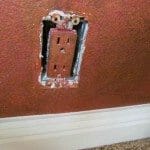 Why Paint On Outlets Can Be A Safety Concern
Painted outlets can look cool but they can also create a hazardous condition.
Why Paint On Outlets Can Be A Safety Concern
Painted outlets can look cool but they can also create a hazardous condition.
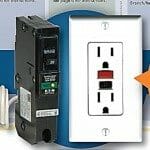 AFCI Breakers and outlets
Do you know the difference between AFCI and GFCI? This could save your life!
AFCI Breakers and outlets
Do you know the difference between AFCI and GFCI? This could save your life!
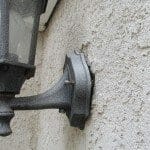 Exterior Light Not Caulked or Sealed At Wall
Unsealed exterior lights may allow moisture to intrude into the wall or fixture: keeping sealed is helps prevent mold.
Exterior Light Not Caulked or Sealed At Wall
Unsealed exterior lights may allow moisture to intrude into the wall or fixture: keeping sealed is helps prevent mold.
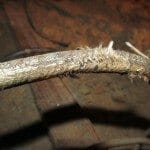 Insulation Frayed or Damaged on Electrical Wiring
Insulation that is nicked or damaged is a safety concern. Overheating of a circuit may cause the insulation to melt or fall off.
Insulation Frayed or Damaged on Electrical Wiring
Insulation that is nicked or damaged is a safety concern. Overheating of a circuit may cause the insulation to melt or fall off.
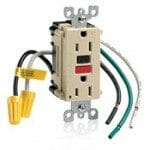 GFCI Outlets And Where They Are Required
Where do you put GFCI outets? We know that they go in kitchens and bathrooms, but they also should be...
GFCI Outlets And Where They Are Required
Where do you put GFCI outets? We know that they go in kitchens and bathrooms, but they also should be...
 Hot circuit breaker
Is you electrical breaker "hot" or a little "warm"? Is the panel warm when you touch it?
Hot circuit breaker
Is you electrical breaker "hot" or a little "warm"? Is the panel warm when you touch it?
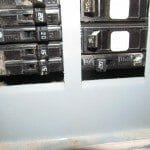 Breaker keeps tripping
Breaker keep tripping or popping . Tired of resetting it? Why is it tripping?
Breaker keeps tripping
Breaker keep tripping or popping . Tired of resetting it? Why is it tripping?
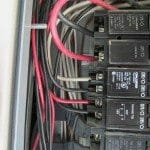 White wire connected to a breaker
When there is a white wire connected to a breaker and not the neutral bar, then the reason may be...
White wire connected to a breaker
When there is a white wire connected to a breaker and not the neutral bar, then the reason may be...
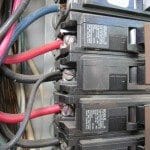 “Double tapped” breaker
When two wires / circuits are connected to one breaker, it may be "Double Tapped", what you do is ...
“Double tapped” breaker
When two wires / circuits are connected to one breaker, it may be "Double Tapped", what you do is ...
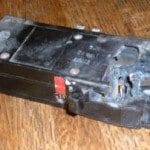 Burn Marks on Electrical Breakers Can Be A Fire or Shock Concern
Excessive heat or a defective breaker, may result in burn marks or a chard look. The best solution...
Burn Marks on Electrical Breakers Can Be A Fire or Shock Concern
Excessive heat or a defective breaker, may result in burn marks or a chard look. The best solution...
